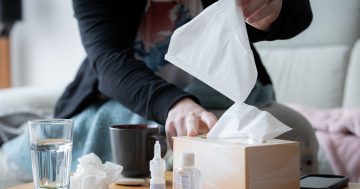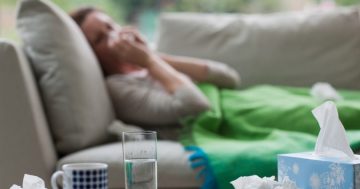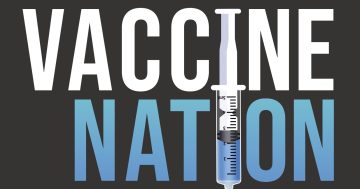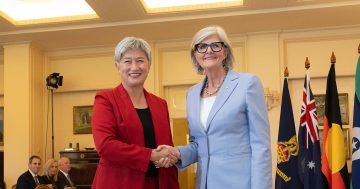Arianna Huffington* says we can do much to shore up pandemic-stricken national health systems by paying more attention to our personal health systems.
 We have entered the third year of the COVID-19 pandemic.
We have entered the third year of the COVID-19 pandemic.
Throughout this time public health agencies have been constantly updating, and sometimes even reversing, recommendations.
There has been much messaging about vaccines, masks, social distancing and other now-familiar aspects of life in the time of COVID.
There has been very little on the huge impact that lifestyle factors like sleep, nutrition and movement can have on how vulnerable we are to the virus.
There are steps beyond getting vaccinated and boosted and wearing masks — critical though these are — that increase our chances of either not contracting COVID or, if we do, of getting through it with a much lower risk of hospitalisation and severe illness.
Let’s look at sleep. It boosts our immune system on a continuous basis and plays a big role in how much protection we get from vaccines.
A study by researchers at the University of California, San Francisco looked at the impact sleep has on the response to hepatitis B vaccines. The results were astounding.
Those who slept less than an average of six hours were 11.5 times more likely to be unprotected by the vaccine than those who slept an average of seven hours or more.
Another study found that those who had slept only four hours in the four nights before receiving the flu vaccine had less than half of the critical antibodies of those who weren’t sleep deprived.
While we sleep, the core elements of our immune system wake up and get to work, strengthening what’s called immune memory.
We know that movement and exercise are good for our overall health, but they’re also an important tool against COVID.
A recent study in the British Journal of Sports Medicine showed that exercise has a dramatic effect on our body’s ability to fight COVID.
Researchers found that compared to COVID patients who exercised 11 to 149 minutes each week, “consistently inactive” patients were 120 per cent more likely to be hospitalised.
They were also 110 per cent more likely to be put in ICU and 132 per cent more likely to die.
Weight is also a significant risk factor.
A report by the World Obesity Foundation found that in countries where the majority of adults are overweight, death rates from COVID were 10 times higher than in countries where less than half of adults are overweight.
A study by researchers from the University of North Carolina found that individuals with obesity were 46 per cent more likely to get COVID.
They were 113 per cent more likely to be hospitalised and carried a 48 per cent higher risk of death.
Yes, weight loss is difficult, but any weight loss is a positive at nearly any weight level.
Right now, as we enter the third desperate year of the pandemic, we need all the inspiration we can get.
That means using all the tools at our disposal to strengthen our defences.
Even before the pandemic, an estimated 90 per cent of our health care spending was going toward the treatment of mental health conditions and stress-related chronic diseases like heart disease and diabetes.
We know the science on how lifestyle factors like sleep, movement and nutrition can boost our immunity and generally improve our ability to weather COVID-19.
Yes, we still absolutely need people to get vaccinated and boosted. We still need to make rapid testing more accessible. We still need to wear effective masks.
We also need to go upstream and focus on the modifiable factors that we know put us at higher risk not just of COVID, but a whole host of chronic illnesses.
As sociologist, Zeynep Tufekci put it in The New York Times: “It’s so disappointing to enter 2022 with 2020 vibes.”
Preparing for the next pandemic, or the next variant, shouldn’t just be about ramping up our supply of ventilators and expediting the process for approving new vaccines and treatments.
A vital part of shoring up our public health system is shoring up our personal health system — the small choices we make every day that make a big difference.
*Arianna Huffington is the founder and Chief Executive of Thrive Global; the founder of The Huffington Post, and the author of 15 books.
This article first appeared on LinkedIn.com.











